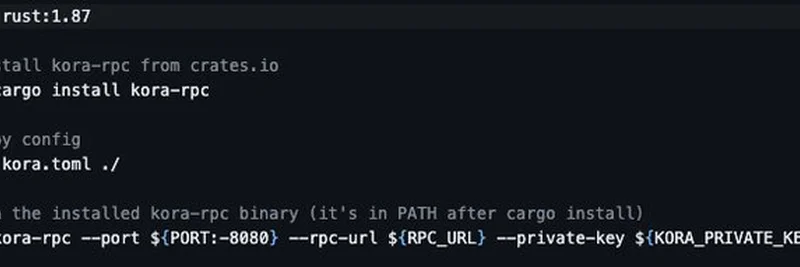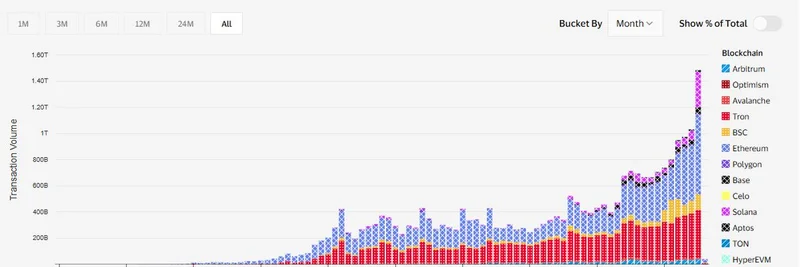Hey there, meme token fans and blockchain enthusiasts! If you’ve been following the latest buzz on X, you might have stumbled upon an exciting post by @pkxro about offering gasless experiences using a simple Dockerfile setup with Kora-RPC on the Solana blockchain. This is a game-changer for developers looking to create seamless, user-friendly decentralized applications (dApps). Let’s break it down step-by-step and see how you can get started!
What Are Gasless Transactions?
First things first—let’s talk about gasless transactions. In the blockchain world, "gas" refers to the fee you pay to process transactions on networks like Ethereum. These fees can get pretty steep, especially during busy times, making it tough for everyday users to jump in. Gasless transactions, however, let users interact with dApps without paying these fees upfront. Instead, a relayer or service covers the cost, making it super convenient—think of it like someone else footing the bill for your coffee!
The Kora-RPC Magic
The post highlights a tool called Kora-RPC, which seems to be a Rust-based solution (built with version 1.87, to be exact) designed to simplify this process on Solana, a blockchain known for its speed and low costs. Solana can handle thousands of transactions per second with fees under $0.0025, making it a perfect playground for experimenting with gasless tech. Kora-RPC leverages this efficiency to offer a smooth experience, and the Dockerfile setup shared by @pkxro makes it accessible even for those new to blockchain development.
Diving into the Dockerfile
So, what’s in this Dockerfile? Let’s take a look at the code shared in the tweet:
- Base Image: It starts with
rust:1.87, giving you a solid foundation for Rust development. - Install Kora-RPC: The command
cargo install kora-rpcpulls the Kora-RPC tool from crates.io, a registry for Rust packages. - Copy Config: A
kora.tomlfile is copied into the container, which likely holds your custom settings. - Run the Binary: The
kora-rpccommand fires up the tool, with options like--port,--rpc-url, and--private-keyto configure it. These variables (e.g.,$PORT,$RPC_URL,$KORA_PRIVATE_KEY) can be set via environment variables, keeping things flexible.
This setup is a breeze to containerize using Docker, an open-source platform that packages apps into lightweight containers. It’s like putting your blockchain node in a neat little box, ready to deploy anywhere!
Why This Matters for Meme Tokens
If you’re into meme tokens—those fun, community-driven cryptocurrencies like Dogecoin or Shiba Inu—this tech is a big deal. Gasless experiences remove barriers for new users, encouraging more people to join the meme token craze. Imagine launching a meme token dApp where users can trade or mint tokens without worrying about fees—talk about a viral hit!
Getting Started
Ready to try this yourself? Here’s a quick rundown:
- Install Docker on your machine.
- Create a
Dockerfilewith the code from the tweet. - Set up your
kora.tomlconfig file (you might need to dig into Kora’s docs for specifics). - Run
docker build -t kora-rpc .and thendocker run kora-rpcwith your environment variables.
Pro tip: Keep your private key secure—never hardcode it in the Dockerfile!
The Future of Gasless Tech
This setup by @pkxro is a glimpse into the future of blockchain. As platforms like Solana continue to evolve, tools like Kora-RPC could make decentralized apps more accessible, boosting adoption for meme tokens and beyond. It’s exciting to see how the community on X is pushing the boundaries of what’s possible.
What do you think? Will gasless transactions revolutionize meme token dApps? Drop your thoughts in the comments, and stay tuned to meme-insider.com for more blockchain insights!



